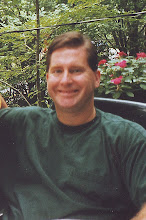Aristotle, one of the greatest political thinkers of the Western tradition, declared that “man is by nature a political animal.” However, there is a tension between two forces which move us: morality and power. Is doing the politically prudent thing compatible with doing the moral thing? Aristotle, like Confucius much further east, believed in the continuity between moral character and political interests. And although he believed politics as well as morality to be based on knowledge, Plato held that engaging in politics requires much specialized training, and that only an educated and morally accomplished elite could achieve political competence. Niccolo Machiavelli finally drove a wedge between the unequal siblings of politics and virtue: A statesman should only be concerned with being powerful, not with being kind or good.
Why have politics at all? Given the many disadvantages which have accompanied political organization throughout history – such as oppression, conflict and unhappy compromises – would human relationships not acquire a more genuine and superior quality without the mechanisms of politics? The Chinese philosopher Laozi had early suggested that the best and most sustainable way for human beings to live together was in small communities with a minimum of political interference. Jean-Jacques Rousseau believed the ‘noble savage’ to be superior to humans formed by civilization. Several theories contrasting the ‘state of nature’ (a hypothetical state of affairs marked by the absence of politics) with political states, however, come to the conclusion that political structure is absolutely necessary for successful human flourishing. John Locke argued that only in a political state would private property be protected. While Locke stated that a government can only have powers over a person who implies or expresses consent, Thomas Hobbes believed that political power could be legitimately acquired by force as well as by consent. This conviction was based on the assumption that, due to human beings’ innate selfishness, a state of nature would be marked by “war of everyone against everyone.” It is therefore rational to accept the dominance of a powerful political leader, a ‘leviathan’, who can protect his subjects and uphold the law.
Since only very few of us find the prospect of an all powerful leviathan attractive, the question remains, which is the best way of organizing ourselves politically? The answer which seems most popular today took a long time to reemerge. But despite Plato’s warning that “democracy passes into despotism,” thinkers of the 18th and 19th centuries enthusiastically engaged in debate on democracy. One of the most eloquent writers on the subject remains Rousseau, who believed that the ‘general will’ could best be addressed in a system of direct (rather than representative) democracy. However, Rousseau was pessimistic about the chances of implementing such an arrangement in society.
As we all know, this did not stop the spread of democratic ideals. And so we find Alexis de Tocqueville, a young French judge and liberal thinker, reporting on his one year visit to America that what repels him most about America is how little concern there is about tyranny. This tyranny he feared was that of the majority dominating minorities, a worry that Tocqueville shared with his friend John Stuart Mill. Mill wrote his ‘On Liberty’ as a reflection on how the autonomous space of the individual might be safeguarded from the domination of the majority.
With its inherent flaws, democracy is still the best way of organizing ourselves politically.
I look forward to your comments
Sunday, July 18, 2010
Subscribe to:
Post Comments (Atom)





This is a good overview of political philosophy, but how could you overlook Karl Marx?
ReplyDeleteI consider communism a failure, although I know it can be argued that communistic societies over the last century did not practice true Marxism.
ReplyDeleteSmoking cigarettes is bad for your health. Can I force you to quit smoking cigarettes if I am paying for your healthcare? Can I force you to take your blood pressure medicine if it will reduce your chance of stroke?
ReplyDeleteWhat exactly do you think the founders of this country meant by the phrase "We hold these truths to be self-evident, that all men are created equal, that they are endowed by their Creator with certain unalienable Rights that among these are Life, Liberty and the pursuit of Happiness."